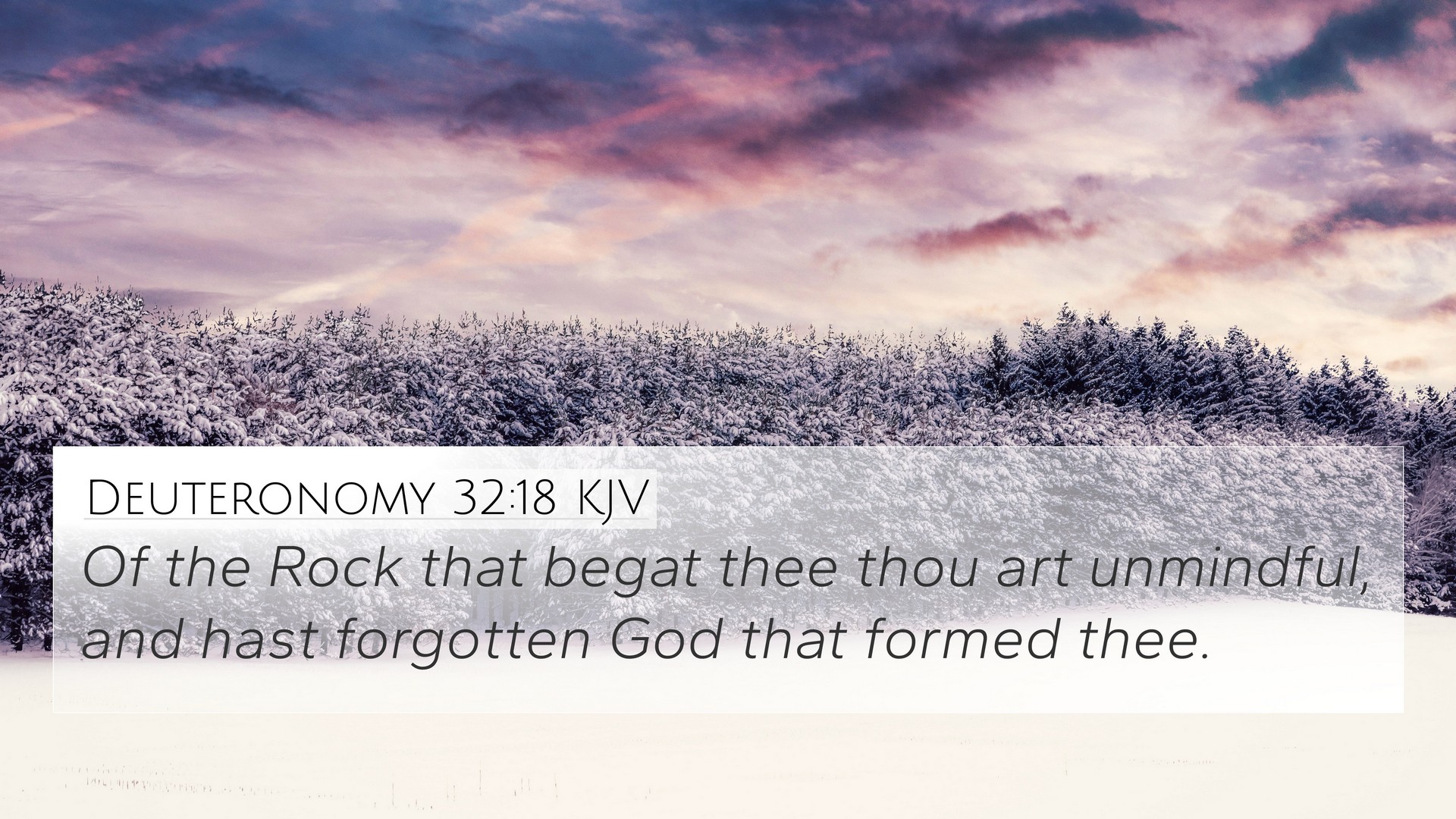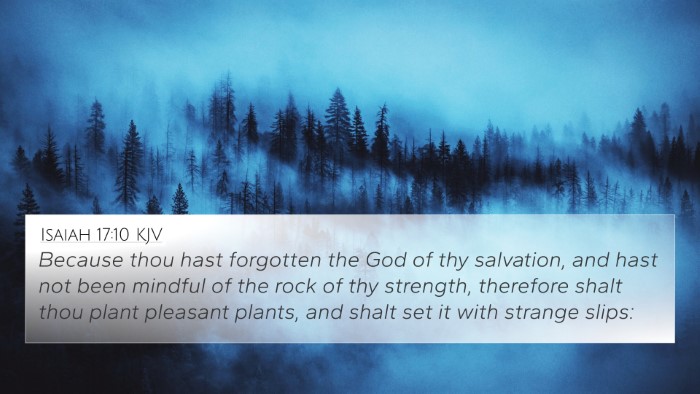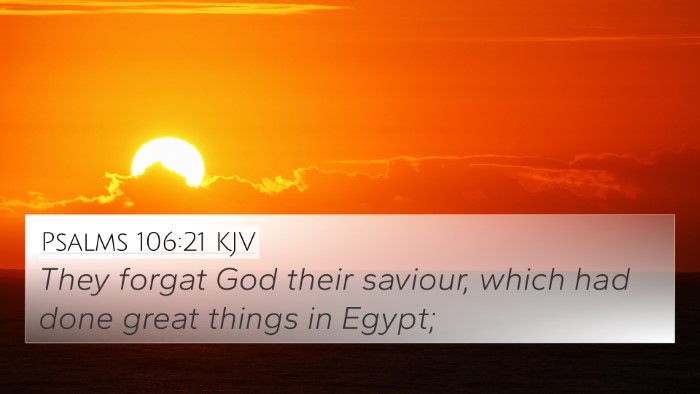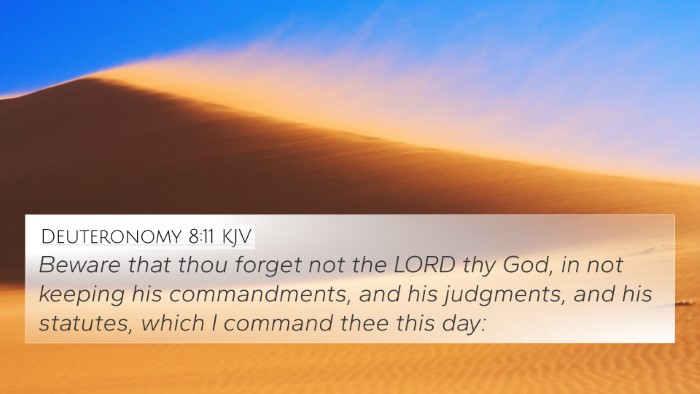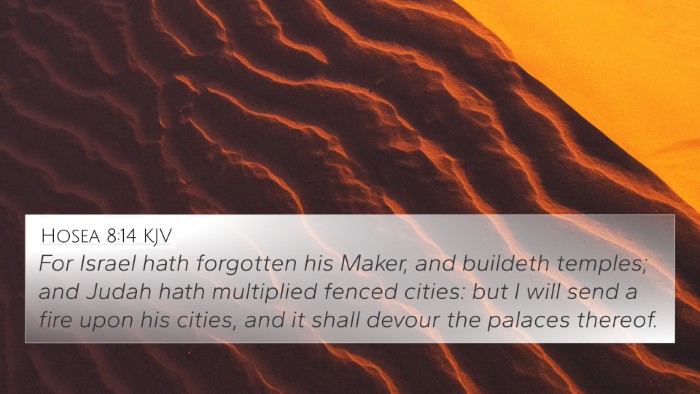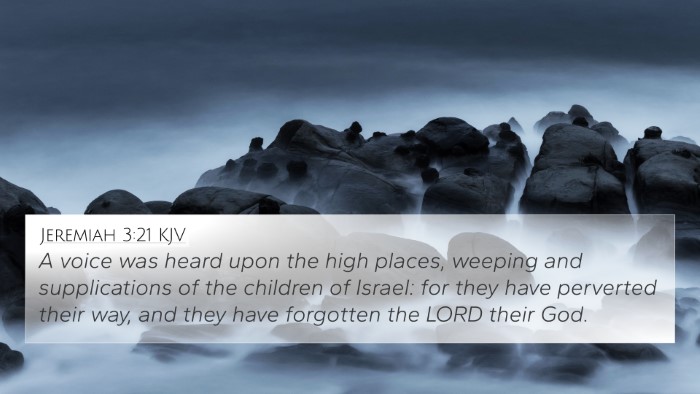Understanding Deuteronomy 32:18
Bible Verse: "Of the Rock that begat thee thou art unmindful, and hast forgotten God that formed thee." (Deuteronomy 32:18)
Overview
This verse serves as a poignant reminder of forgetting one's Creator, highlighting themes of ingratitude and spiritual neglect. It stands within a larger context of warnings given to the Israelites about their relationship with God and the consequences of turning away from Him.
Commentary Insights
- Matthew Henry: Henry emphasizes the metaphor of God as the "Rock," denoting both strength and stability. He points out that the Israelites forget their source of sustenance and support when they engage in sinful practices. He warns of the dangers of drifting from faith and forgetfulness of God's provisions.
- Albert Barnes: Barnes expands on the concept of forgetfulness, asserting that it refers not just to a lack of memory but also to a wilful neglect of the knowledge of God. He relates this verse to the Israelites' history and their repeated failures to acknowledge their dependence on God, resulting in dire consequences.
- Adam Clarke: Clarke focuses on the anthropomorphic language used in this verse, interpreting 'begat' and 'formed' as representing God's creation and nurturing of His chosen people. He elucidates on the significance of recognizing one's origin and the responsibilities that come with it.
Thematic Connections
This verse speaks to various themes present in the Bible, particularly the notions of creation, thankfulness, and remembrance. It compels readers to reflect on their relationship with God and to remain mindful of His role as the source of existence and sustenance.
Bible Cross-References
- Psalm 78:42: "They remembered not his hand, nor the day when he delivered them from the enemy."
- Isaiah 51:1: "Hearken to me, ye that follow after righteousness, ye that seek the Lord: look unto the rock whence ye are hewn, and to the hole of the pit whence ye are digged."
- 2 Peter 1:9: "But he that lacketh these things is blind, and cannot see afar off, and hath forgotten that he was purged from his old sins."
- Malachi 2:10: "Have we not all one father? hath not one God created us? why do we deal treacherously every man against his brother?"
- Romans 1:21: "Because that, when they knew God, they glorified him not as God, neither were thankful; but became vain in their imaginations, and their foolish heart was darkened."
- Hebrews 2:1: "Therefore we ought to give the more earnest heed to the things which we have heard, lest at any time we should let them slip."
- Revelation 2:5: "Remember therefore from whence thou art fallen, and repent, and do the first works; or else I will come unto thee quickly, and will remove thy candlestick out of his place, except thou repent."
Role of Cross-Referencing
The process of cross-referencing Biblical texts enriches the understanding of Deuteronomy 32:18 by illuminating connections across both the Old and New Testaments. Here are some insights:
Tools for Bible Cross-Referencing
Utilizing a Bible concordance or a cross-reference guide enhances the study experience. It allows for a deeper understanding of how various scriptures relate to one another, fostering a more comprehensive grasp of biblical themes.
Connections Between Bible Verses
Cross-referencing is an invaluable tool for anyone looking to explore thematic Bible verse connections. It reveals the continuity and dialogue within scripture, often showing how one biblical concept is reiterated throughout the text.
Conclusion
Deuteronomy 32:18 serves as a profound reminder for believers to remember their Creator in all things. By engaging in comparative Bible verse analysis and exploring thematic connections, one is encouraged to nurture a deeper spiritual awareness and gratitude for God’s presence in their lives.
Ultimately, forgetting God leads to spiritual blindness and disinterest in His ways, which may have serious consequences. The intricate web of Bible verses that relate to each other provides a framework for understanding one's faith and the importance of remembrance and gratitude.
